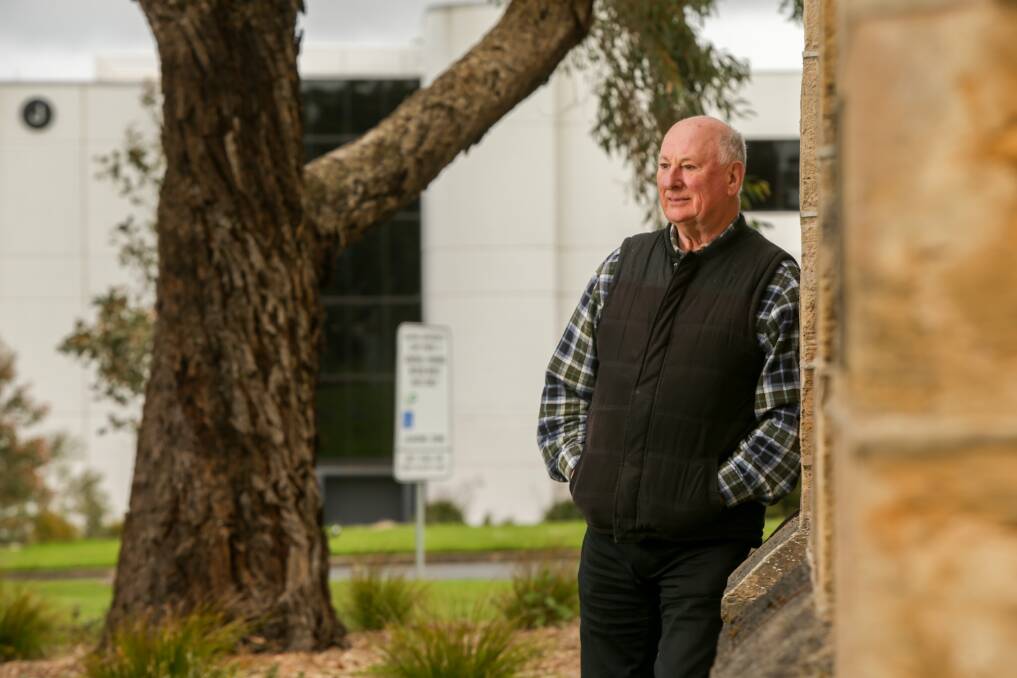
The federal government seems serious about fixing general practice medicine, a south-west expert says, but its plans raise just as many questions as answers.
Subscribe now for unlimited access.
$0/
(min cost $0)
or signup to continue reading
The government released its Strengthening Medicare report in February as it attempts to chart a way out of a nationwide general practice crisis that is hitting rural and regional areas particularly hard.
The Standard spoke to local doyen Professor James Dunbar to assess what the plan offers south-west Victoria, where the shortage of GPs is pushing many patients into emergency departments.
"Overall it's absolutely the correct direction of travel," Professor Dunbar said of the report.
"Some countries are much further down the track than us, but Labor's committing to a 10-year plan to actually do something."
The plan has four key planks: increasing access to the primary care system, moving towards 'multidisciplinary care', modernising the use of digital technology, and providing resources to support GP clinics to make the major changes necessary to reform the sector.
Professor Dunbar said all the aims were worthy, but the big question was implementation.
"They've got the 'what' right, but not the 'how'," he said.
"For example, they propose regional areas finding their own solutions, but the devil's really in the detail of that because the Medicare rules are the rules, you can't just invent how you do it, so I don't know how that would work."
Professor Dunbar said one promising proposal was "voluntary enrolment" for patients with chronic illnesses, where the GP clinic received government funding for a patient's entire package of care, rather than for individual visits.
"So the incentive there is that at the moment if you've got any of these conditions it's the GP that gets paid for the care and therefore only the GP can do it, and that's complete nonsense.
In the UK they've had nurses doing this kind of work for 30 years, and if there's something the GP needs to do they bring them in or catch them in the corridor," he said.
"It's efficient for the patient, they have more time to speak to the nurse, but it mainly removes the incentive for the GPs to do everything and creates an incentive to delegate to nurses, or allied health staff like dieticians or physiotherapists."
Newly released government bulk-billing data from 2021 revealed the south-west was in the lowest 25 per cent nationally when it came to bulk-billing rates. The data showed just 54.6 per cent of patients in the electorate of Wannon were consistently bulk-billed, a figure that has almost certainly dropped further since.
The data looks even worse when you factor in Wannon's low average household income of $1325 per week, since the absence of bulk-billing hits poorer households harder than wealthier ones. Only three electorates in Australia with a lower average household income had worse bulk-billing rates.
"The near death of bulk-billing is a real problem," Professor Dunbar said. "My own practice has just given up bulk-billing and I know a lot of practices just can't make ends meet any more if they bulk-bill. So the government needs to do something about that.
"We're almost in a vicious downward spiral at the moment where things are so bad they can only get worse because everybody's fed up with it and wants to go away and do something else."
But he said there was one way to address the critical GP shortage in regional areas like the south-west.
"Pay them more. Most countries when they have a problem like this they pay people more to work in rural and regional areas, it's as simple as that," he said.
"First of all you need to create a disincentive for working in metropolitan areas and an incentive for going to rural and remote Australia, so paying more is an obvious one.
"It's also something you could do within the sort of changes they're proposing - just have a different rate of pay for working in rural and remote areas."
Professor Dunbar said money would be a crucial element, but after a decade of cuts to the sector the government was behind the eight ball.
"The GPs have had no pay rise for 10 years, there's a huge backlog in underfunding, so there's a huge catch up to do before you can set about transforming the system," he said.


